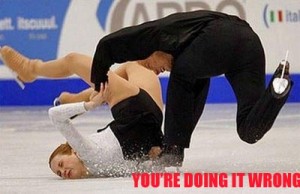There’s a piece of common wisdom that has been around the writing community forever, especially in the sci-fi and fantasy groups. It is so old and so frequently echoed that I can’t even remember who first said it because every time you hear it someone presents it as something they came up with themselves. It changes from person to person, but the basic concept is always the same:
That’s it – clean, clear and simple. So, of course, that’s what you should strive to do, right? You should make every effort to avoid making up a new word if you can because the act of creating new words is the mark of an amateur that will live in obscurity for the rest of time. You know, like Shakespeare.
By some accounts, that hack William Shakespeare introduced over 1700 words to the English language over the course of his career that we still use today. You think it’s hard to understand while reading it now? Back then people had never even heard most of these words, such as:
Alligator
Bedroom
Belongings
Bloodstained
Coldhearted
Disgraceful
And countless other words you’ve probably heard on the street or in a rap song. So of course, as you can clearly see, it’s dangerous to make new words because if you do you’ll be forever forgotten and unwanted for the rest of eternity, just like Shakespeare.
Oh, wait, that’s right: Shakespeare is god damned legendary now and is used as a measuring stick for which many other writers are measured against either seriously or in jest. “He’s no Shakespeare” is so damn common a phrase that he technically ended up continuing to invent phrases even after his death. So where do people get off telling you not to try to invent something?
Well this, like most common wisdom, is bullshit created by two things: watching someone do it badly and deciding that’s how everyone’s results will turn out. If anyone screws up, for any reason, you’ll notice that people have a tendency to assume that the reason it failed was because it was done and not how it was done.
Many of the people who analyze writing and make judgments on the way things should be done are only applying their experiences and deciding those apply to the rest of the world. Even when I’m saying something here, I’m applying something that I believe is universal. And, in my mind, the universal solution is that there is no universal solution. Everyone will approach everything as it best suits them. All we can really do is show each other what we have learned and tell them how to avoid problems, rather than avoiding actions.
Shakespeare, clearly, managed to create thousands of words and phrases over his career and he suffered no consequences for this “crime” in the eyes of history. If you feel like you should do it too, then you should. if only to be true to yourself. A lot of authors who give advice today feel they’re in a position to give advice, that you should follow their lead because they’re ahead of you somewhere. But if you’re going to aim to be an author, why not aim for Shakespeare?
 |
| Not that way |
Some would think that aiming to be like Shakespeare is arrogant. A lot of people in our society chase fame and fortune. Just as many condemn people who want to be famous. But remember that chasing fortune doesn’t necessarily mean chasing riches. Sometimes it’s chasing the ability to be considered fortunate. And, if that is the case, if you aim high and fail you’ll find yourself still above average. If you aim low and fail, you’ll eat pavement. Besides, aiming high has worked for others.
Consider the classic authors and how many of them created a word or used one that hadn’t been used for ages. Mithril, quark, nerd, robotics, cyberspace and even the term tween (which you can’t escape anymore) were all words cooked up to fill a need in an author’s work. But notice what works about these and what doesn’t about others. When you look at some ridiculous words like “teleojuxtaposition”, “granfalloon” or “speelycaptor”.
Seriously, sit there and try to read that first one out loud and you’ll see exactly what the difference is. It’s not just about the difficulty of saying it, but about how jumbled it sounds when you do say it. These things completely lack musicality. (a word made up in the mid 19th century, by the way)
Perhaps the lesson that should be taught isn’t “don’t make new words” but rather “if you make new words, make sure they don’t sound like crap.” This seems like a simple concept because it is. If you’re going to make up a new word, make sure you can say it and that other people can say it too. If it sounds like a mouth-full, it is, and no one is going to want to say it with you. It’s a handy rule of thumb, don’t you think?
 |
| Though, sometimes, it’s not the word |
So be bold, take risks and be creative when you find a situation that might be deserving of a new word. Test it out, make sure it works for people other than you, but don’t be afraid to experiment when you see the opportunity. After all…
Someone has to come up with this shit.
And as for me? I came up with some original words in my books. Give them a look, maybe someday they’ll be added to the dictionary too.










